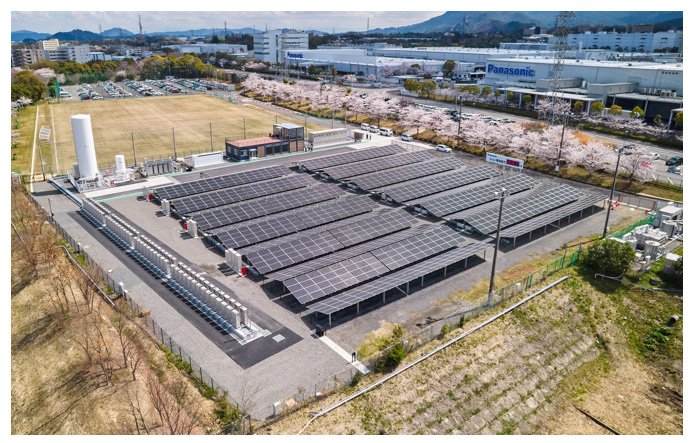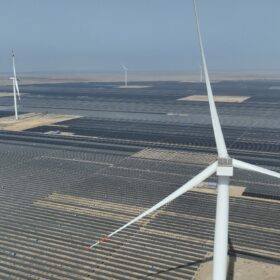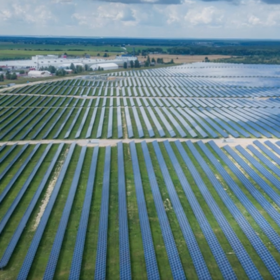From pv magazine Global
Japanese electronics manufacturer Panasonic has commissioned a pilot hydrogen plant combining photovoltaics with storage and fuel cells at its fuel cell factory in Kusatsu, Shiga Prefecture, in central Japan.
The system has a power output of 1.07 MW, with 570 kW are provided by the solar array and 495 kW by Panasonic’s own fuel cell systems. It also relies on lithium-ion batteries with a combined storage capacity of 1.1 MWh. The Kusatsu site has a peak demand of around 680 kW and an annual power demand of around 2.7 GWh.
The pilot facility occupies a surface of around 6,000 square meters. It is purportedly the world’s first attempt to create a factory powered by 100% renewables through the full-scale use of hydrogen.
“Through this demonstrator, we will acquire know-how and data related to energy management, including the operation of pure hydrogen fuel cells,” the manufacturer said. “The generated power will cover all the electricity needed by the manufacturing department of the fuel cell factory in the Kusatsu base.”
The facility was built with 99 Panasonic H2 Kibou fuel cell systems with capacities of 5 kW each. The system works with pure hydrogen at a density of more than 99.97%, and achieves electrical efficiency of 56%. It measures 834 mm × 417 mm × 1,766 mm and weighs 205 kg, including the design panel.
The fuel cell generator can be used with an operating temperature between -10 C and 40 C, at altitudes not exceeding 500 meters. During power outages, it is able to generate electricity and to use up to 2.5 kW of its capacity for at least 120 hours.
This content is protected by copyright and may not be reused. If you want to cooperate with us and would like to reuse some of our content, please contact: editors@pv-magazine.com.









By submitting this form you agree to pv magazine using your data for the purposes of publishing your comment.
Your personal data will only be disclosed or otherwise transmitted to third parties for the purposes of spam filtering or if this is necessary for technical maintenance of the website. Any other transfer to third parties will not take place unless this is justified on the basis of applicable data protection regulations or if pv magazine is legally obliged to do so.
You may revoke this consent at any time with effect for the future, in which case your personal data will be deleted immediately. Otherwise, your data will be deleted if pv magazine has processed your request or the purpose of data storage is fulfilled.
Further information on data privacy can be found in our Data Protection Policy.